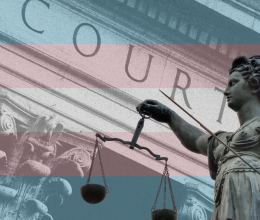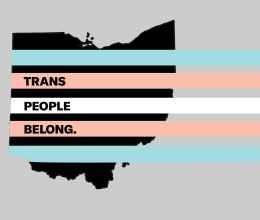The U.S. Supreme Court has spoken: it will not hear any of the current seven marriage equality cases across the country.
There has been a lot of speculation that the Supreme Court would hear at least one case. So by denying all of the cases, the judges are sending a message that they agree with lower courts striking down marriage bans.
What does this mean for same-sex marriage in the United States?
When the Supreme Court declines to hear a case, it means that the lower courts’ decisions go into effect. This is great news for people in Virginia, Oklahoma, Utah, Wisconsin, and Indiana. Marriages will go forward in those states. It will also affect any other states that fall under the authority of Fourth, Seventh, or Tenth Circuit courts. We are now potentially at a total of at least 30 states with marriage for same-sex couples.
What does this mean for same-sex marriage in Ohio?
The Supreme Court’s denial does not change anything for marriage equality in Ohio. Five cases from four states—including two from Ohio—are still waiting for a decision from the lower court, the Sixth Circuit Court of Appeals. We expect to hear from them soon, but we do not know exactly when that will be.
What happens when we do get a decision from the Sixth Circuit?
If the Sixth Circuit rules in our favor, Ohioans (as well as those from Michigan, Tennessee, and Kentucky) would gain marriage equality. If they rule against us, the gay marriage ban would remain and Ohio would not have to recognize out-of-state unions. Handing down a negative ruling would make the Sixth Circuit the first lower court to uphold a marriage ban so far. This would set up conflicting rulings from other circuit courts, making it more likely the Supreme Court would eventually take up a case to resolve the differences—and possibly even Ohio’s case. Even if the Sixth Circuit rules in favor of marriage equality, the state may still appeal that ruling to the full Sixth Circuit or to the Supreme Court. We do not know how the Sixth Circuit judges will rule or if the Supreme Court’s October 6 decision will affect their ruling.
Overall, this is a huge step forward in the movement for the freedom to marry. But there is still work to be done to ensure that loving and committed couples have the protections of marriage applied equally throughout the country.
The ACLU is co-counsel to one of the cases in Ohio as well as in five of the seven cases that were before the Supreme Court. To see a map of all of the lawsuits across the country, visit ACLU’s campaign website, Out for Freedom.







